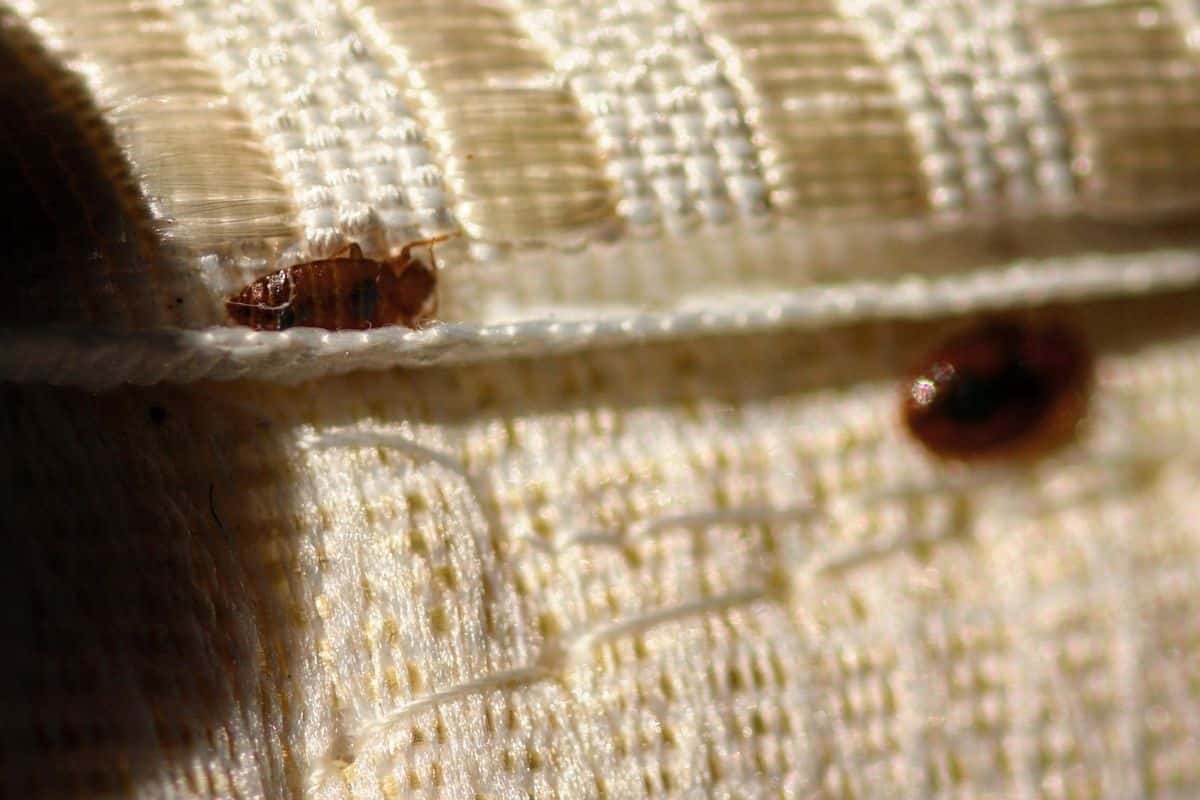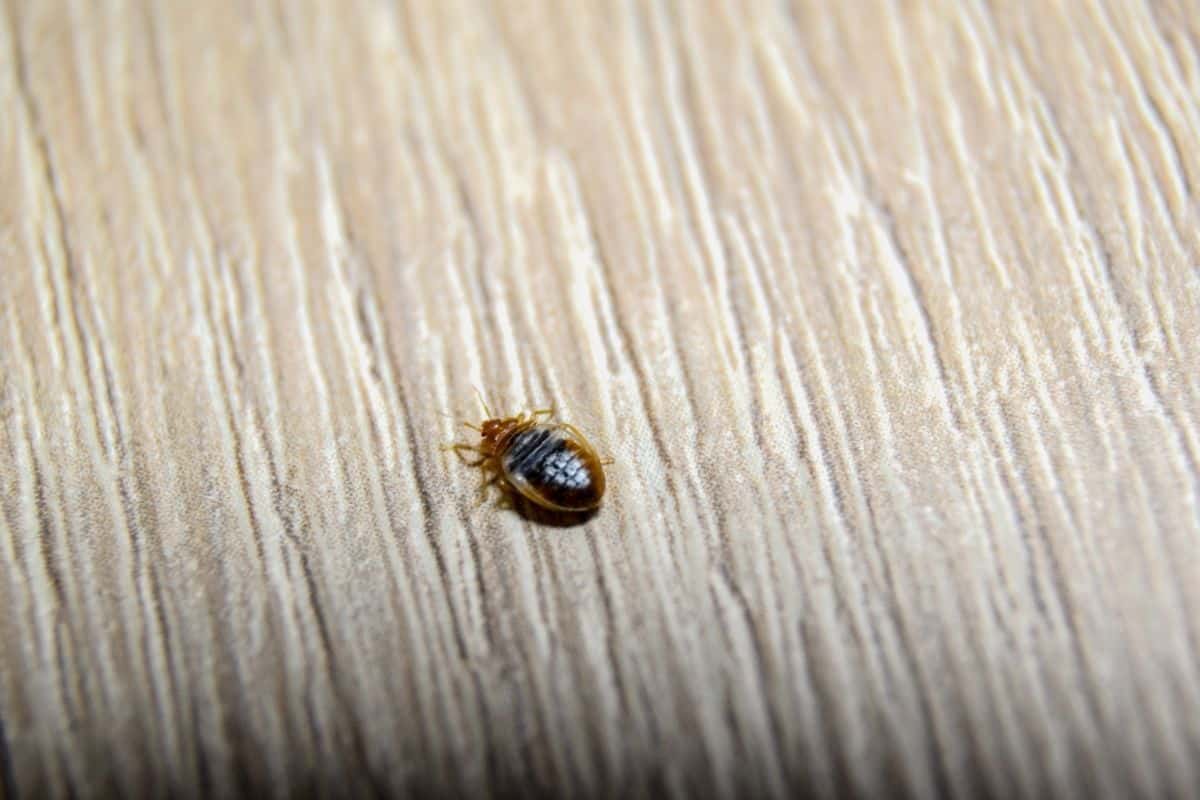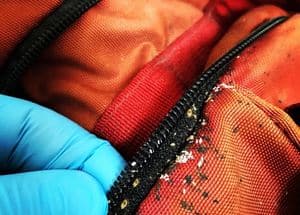Bed bugs live in beds and other furniture, as the name suggests. But how do they get there? Can bed bugs live in clothes and travel from home to home this way?
Knowing how exactly this happens may save you from infestation and help you to keep your home clean of these parasites. There’s more to this riddance than just washing your clothes and ventilating your wardrobe.
But neither is it a fine art for the chosen few: you have everything it takes to fight this plague.
Why Are Your Clothes Infested With Bed Bugs?
Are you sad because you’re sleeping alone? Do you miss that sweet itch that someone causes by touching your skin or even playfully biting? Well, it may happen you’re indeed not alone, but this is not the company you’d prefer, and not that sweet sort of itch.
Why are they here? Probably you didn’t want to bring bedbugs home on your clothes, but you did. Can one prevent it? Or kill the bugs once they’re already here? Here is the guide on handling them.
As the name suggests, bed bugs live in soft furniture. Not only in beds, but in everything fabric, and the difference between beds and clothes is neglectable in this respect. If they can live in beds, they can live in your T-shirts, trousers, or jackets. And if they can, they do.
It only aggravates the situation that most bed bugs can only be noticed with the naked eye if you make an effort. They are the size of an apple seed, brown (or red if freshly fed), egg-shaped, and hard to see, especially if their color matches the color of the fabric.
You can also notice its molted skin, and as it’s dry, you can even hear it rustle. Nymphs and eggs are even smaller, and a single one is almost unnoticeable unless in a contrasting color.
A colony of bedbugs is easier to see. But if you see a colony, it means they have been here for too long already. In fact, they may always be present in your wardrobe even if you aren’t aware.
How Did They Get in There?
It’s not hard to imagine how exactly bed bugs get in your clothes. The simplest way of traveling for them is to switch to your jeans, sweater, or T-shirt while you are sitting on your bed or sofa.
Given how small and fast they are, the infestation takes just seconds. And then you are ready to go and spread them around, bring them to your workspace (you have a sofa there? Great!), to your friends’ places, to strangers you encounter on the street if you get too close – you understand.
Even if you debug your furniture periodically by vacuuming and washing them, there is no guarantee you won’t bring new ones from somewhere where such hygiene is not practiced.
And if your neighbors happen to be this kind of people, chances are they will constantly provide you with new guests that feed on your blood and leave your skin irritated.
Do bed bugs stay on clothes after an accidental touch? And how quickly can bed bugs stick to clothes? The answer is: they can, and it’s a matter of minutes.
You don’t even notice them during the transfer. If you wash or steam these clothes before, you will extinguish the invaders and not even acknowledge their presence. But it’s no reason to relax: they can still be there.
How Long Can Bed Bugs Live on Clothes?
If you suddenly expect to kill them with hunger, leave this hope. On clothes piled in your wardrobe, bed bugs can live for weeks and even months.
The insects are famous for their slow metabolism and ability to survive extreme conditions, and those on your shelves are far from extreme. Neither are they extreme for bed bug eggs on clothes, so even a single female can spawn a colony if undisturbed for long enough.
Without blood, the colony will perish, but it will take too long. And how far can you carry bed bugs on your clothes if they are so into survival?
If you don’t want to wait, you can accelerate this riddance. The next section is devoted just to methods of bug-a-cide that can be practiced on your clothes without violating any of the Geneva conventions.

How to Get Rid of Bed Bugs From Clothes
There are various ways to get rid of bed bugs. The methods below work better when combined, and none of them is sufficient alone. The most obvious method requires a washing machine and a rubbing alcohol spray.
- Spray the alcohol on the clothes on which you have found a bedbug, unless they are non-colorfast or dry-clean only.
- Wash your clothes with a regular detergent. Select hot water, normal cycle, and the highest drying temperature.
- Process your clothes with steam. The temperature of steam should be about 212°F (100°C); if you remember your school lessons on physics, it’s the temperature when water normally boils and turns to steam. It means you don’t have special sorts of steam, with magical spells or SpaceX technologies. A regular steamer will do.
- Non-colorfast clothes or those for dry cleaning only don’t require washing. Put them directly into the dryer or into the washing machine and process them with steam in drying mode.
These procedures grant 100% extinction of the bugs. If you suffer from bugs constantly, make it your default washing procedure until you get rid of them. Alternative methods of fighting the insects include the following:
- Use bed bug sprays. Apply them exactly as the instruction says. Don’t try to save or spare some stuff: apply as much of it as required. And don’t leave anything unprocessed.
- Use a stiff brush before washing your clothes or bedsheets. This way, you remove most of the bedbugs and their eggs from the surface. Remove the collected waste straight away and keep it out of touch with clothes or bedsheets to avoid reinfestation.
How to Prevent Bed Bugs From Getting on Clothes
It’s great when you know how to kill them bugs on your clothes. But it’s better not to have them at all. What can you do to prevent their appearance?
- Keep your house clean. It doesn’t only mean washing clothes and vacuuming floors. You may also need to steam-dry anything fabric, apply sprays, and ventilate your wardrobes.
- When using shared laundry facilities, make sure your laundry doesn’t get in contact with others’. Bugs are attracted by dirty laundry, so beware.
- Buy a special bed bug encasement for your mattresses. Even if they are infested, the covers will protect the bugs from biting you or sticking to your clothes.
- If you buy a “Craigslist couch” (or any secondhand furniture or clothes), debug them with vacuum, steam, or/and sprays the very moment you bring them in. Or even before if possible.
- Share the knowledge. If your neighbors neglect hygiene, they may be the constant source of new specimens. And if so, you have the right to speak to them, because their actions (or rather inaction) affect your quality of life.
- Avoid unnecessary touches. You may think this is needless to say in the COVID-19 era, but don’t relax even if you and everyone around you have already got your shots.
- When traveling, keep your suit in a plastic bag while at the hotel.
There is also a list of measures that seem to make sense though in reality, they don’t. So:
- Don’t use pesticides yourself. This may only scare the bugs away, so they are harder to extinguish.
- Don’t hope that simply moving your bed will help. You will still appear on their radars and be raided for blood.
- Don’t hurry to throw away your furniture or mattresses. Not only because it costs money. By moving your bed or mattress out of your house, you help these little culprits to spread around. And don’t try to sell or give away these items. In addition, it won’t remove all of them.

Bed Bugs in Clothes FAQ
There are some questions that deserve direct answers. I decided to address them separately, as they are very serious by themselves.
If I have bed bugs, do I have to throw away my clothes?
Why so radical? There are ways to debug them, and I have described them above. But if you just wanted to get rid of these clothes, bugs are as good a reason as any other.
The same if you see your clothes are too damaged by bugs. You better pack them in a plastic bag tightly and not leave them in your trashcan for long. Even better if you bring them there right before the waste disposal service arrives.
Will bed bugs bite me if I have my clothes on?
They may. As said above, bed bugs feed on human blood, and they drill for it on your skin. So they can bite you wherever the skin contacts the fabric. It’s less probable, though, than being bitten in your sleep.
Do bed bugs lay eggs on clothes?
Yes, they do, as they can live there for days and even weeks. But they prefer stillness, so they won’t lay eggs on the clothes you are currently wearing. You can rather expect it from bed bugs hiding in clothes. So check your piles periodically, as you didn’t tell them to be fruitful and multiply.
Can bed bugs survive the washing machine?
It depends on the water temperature. It doesn’t take as much heat as with steam: the temperature that surely kills adults is about 140°F (40°C), and all of today’s washing machines are capable of that. Still, it only kills one egg out of four, so dry your clothes after washing to complete the job.
No Ticketless Passengers, Please!
Now you know what to do if you find bed bugs on the clothes you’re wearing. Keep calm, don’t panic, use steam and hot water. And take measures to prevent them from feeling at home at your place. Spread this knowledge to protect your neighbors and yourself as well.
Have you ever had problems with bed bugs? How did you handle them, and how successful you were? Did you make it yourself, or did it take a pest control company to finish the job? Let’s share our stories in the comments!
Also read:


